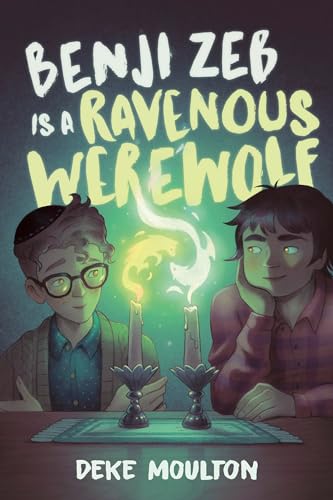He’s a boy, he’s a werewolf, he’s ravenous!
Deke Moulton’s “Benji Zeb Is a Ravenous Werewolf” offers a fresh twist on coming-of-age tales, blending Jewish traditions with supernatural adventure. Twelve-year-old Benji’s life is upended when he transforms into a werewolf while preparing for his bar mitzvah, a milestone already complicated by anxiety and family expectations. Set on a kibbutz doubling as a wolf sanctuary, the story balances humor and heart as Benji navigates his dual identity alongside grappling with his crush on Caleb, a fellow werewolf, and confronting a rancher threatening the sanctuary. Accessible for readers aged 8–12, the narrative uses short chapters and whimsical illustrations to depict Benji’s emotional journey, from chaotic family dinners to moonlit escapades, making it ideal for readers who might feel overwhelmed by dense text.
Educators will appreciate how this book supports diverse learners through its thoughtful design. The straightforward sentences and frequent dialogue create natural pacing, while black-and-white illustrations—like Benji’s doodles during Hebrew lessons—provide visual cues, aiding comprehension for visual learners. Jewish customs, such as Shabbat dinners and bar mitzvah rituals, are woven organically into the plot, offering cultural exposure without overexplanation. Benji’s struggles with anxiety and feeling like an outsider mirror real-world challenges, inviting discussions about self-acceptance and empathy. For classrooms exploring identity or social-emotional learning, Benji’s journey towards trusting his instincts while honoring his heritage resonates deeply. Its blend of relatable conflicts, gentle humor, and supportive visuals makes it a standout choice for libraries aiming to engage reluctant readers with a story that celebrates resilience and belonging.

